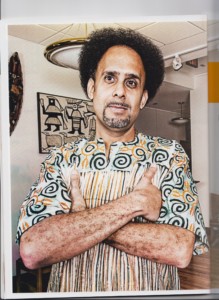“…your celebration is a sham; your boasted liberty, an unholy license; your national greatness, swelling vanity; your sounds of rejoicing are empty and heartless…your shouts of liberty and equality, hollow mockery; your prayers and hymns…mere bombast, fraud, deception, impiety, and hypocrisy—a thin veil to cover up crimes that would disgrace a nation of savages.”
The foremost civil rights leader of the nineteenth-century stated the above words in 1852. Doubtlessly his greatest speech, the prophetic words of Frederick Douglass warrant revisiting during these tumultuous times [hear Ossie Davis’ rendition].
Historically, the Fourth of July has been a cause for celebration by way of flying flags, hot dog eating contests, downtown parades, pit barbecues, viewing fireworks, and the 1996 Will Smith classic Independence Day. However, the tradition of political introspection and historical analyses also abound on this birthday.
Douglass was part of this custom because the moments he lived in demanded action. His address was delivered at Corinthian Hall in Rochester, New York, on July 5, to the nearly all-white local Ladies Antislavery Society. It was 76 years after the country’s creation; 14 years after he liberated himself; six years after the U.S. invasion of México; two years after the Fugitive Slave Act; one year after Harriet Tubman joined the Underground Railroad, Sojourner Truth proclaimed “Ain’t I a Woman?” and the U.S. Congress passed the Indian Appropriations Act; and three months after the release of Uncle Tom’s Cabin. The setting becomes important to assess how the political climate of the period influenced his insight.
After his speech, the drums of war in the not-too-distant horizon could be heard. The Civil War between the South and North had many antecedents, including Sarah Parker Remond being injured by a police officer in her attempt to integrate a Boston theater in 1853; the repeal of the Missouri Compromise in 1854; the partisan arrest and trial of Margaret Garner and the caning of Senator Charles Sumner in 1856; the dreadful Dred Scott decision of 1857; John Brown’s failed raid on Harpers Ferry in 1859; and Texas seceding on February 1, 1861.
Many abolitionists used The Fourth to remind the citizenry of the homeland’s lofty goals and how it fell short of the promises made at its founding. For example, William Lloyd Garrison burned a copy of the U.S. Constitution at a celebration organized to protest the unjust return of Anthony Burns to the antebellum South. Additionally, some northern Blacks refused to acknowledge the country’s Independence Day altogether, preferring to recognize Crispus Attucks’s death instead on March 5, 1770, New York state emancipation on July 5, 1827, or the English Caribbean’s ending of slavery on August 1, 1834. These varying dates permitted African Americans to acknowledge Black liberation efforts. It also allowed making the political statement that the Fourth of July is not to be celebrated until freedom came to all.
At nearly 5,000-words, Douglass’ thoughts were damning of some foundational principles: democracy, capitalism, and Christianity. The indictment included the hypocritical boosters of these philosophies. So the question begs, is the text relevant today?
A resounding, yes!
The latest uprisings due to the indiscriminate police murders of Breonna Taylor, George Floyd, Rayshard Brooks, and so many other African Americans demand for the conscientious to act.
At Prairie View A&M University, President Ruth Simmons is leading the charge. The hope is that professors of all disciplines will join her to speak-up, speak-out, and speak truth to power for our students, our communities, and our nation. A better world is possible, but only with political involvement, social commitment, and economic sacrifice: a fitting remembrance of Frederick Douglass on this Fourth of July.
I will end as I started, with his own words that should be recited annually:
“At a time like this, scorching irony, not convincing argument, is needed…a fiery stream of biting ridicule, blasting reproach, withering sarcasm, and stern rebuke. For it is not light that is needed, but fire; it is not the gentle shower, but thunder. We need the storm, the whirlwind, the earthquake. The feeling of the nation must be quickened; the conscience of the nation must be roused; the propriety of the nation must be startled; the hypocrisy of the nation must be exposed; and the crimes against God and man must be proclaimed and denounced.”
Will Guzmán is a professor of history at Prairie View A&M University. He is the author of Civil Rights in the Texas Borderlands: Dr. Lawrence A. Nixon and Black Activism.

